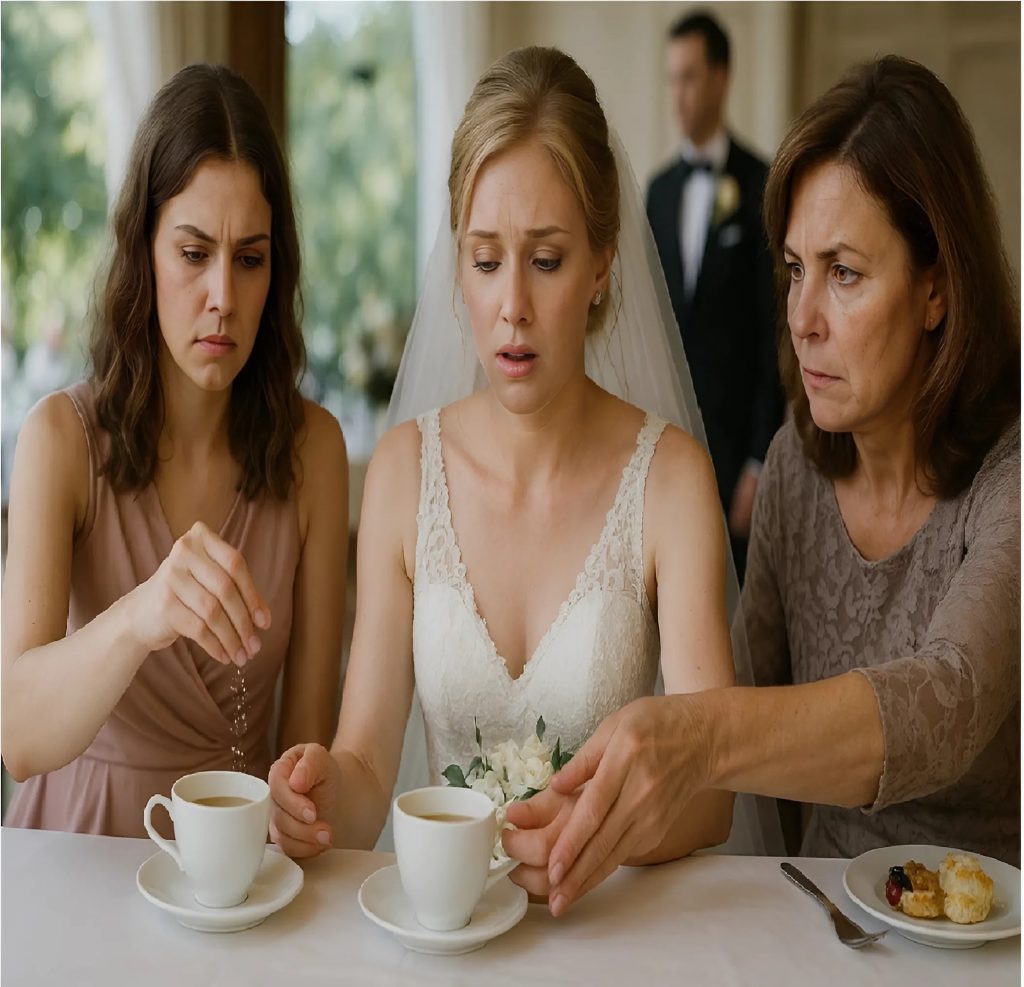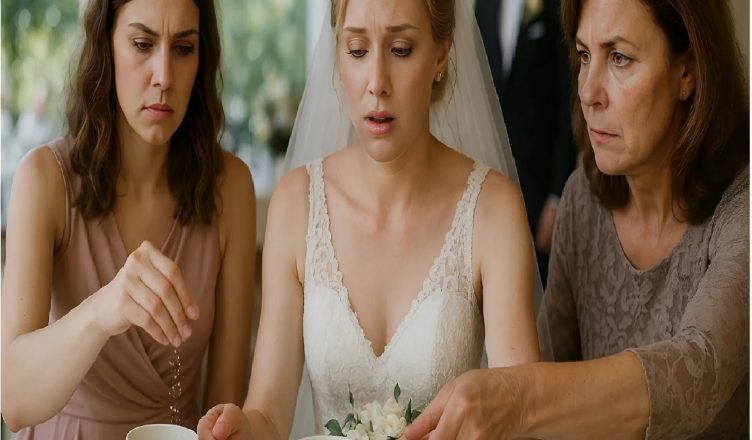It was meant to be a day of joy, celebration, and the union of two families. The gardens were decorated with ivory roses and strings of soft lights. Guests moved between tables draped in silk, sipping champagne, exchanging toasts, and praising the elegance of the ceremony. But amidst the laughter and music, one woman’s quiet observation altered the course of the entire day — and possibly several lives.
It began with a glance.
The groom’s mother, Elaine, a reserved but astute woman in her early sixties, had been observing from a distance. She wasn’t one to meddle, but years of navigating social intricacies had taught her one skill: nothing at weddings is ever exactly as it seems.
A Subtle Gesture — and Deep Suspicion
Elaine had never completely warmed to the bride’s family, though she never voiced it aloud. There was something — a coldness in the bride’s sister, Clarissa, that she couldn’t ignore. Beautiful, composed, but always watching, always measuring.
During the reception, as servers moved through the crowd with trays of dessert and tea, Elaine’s gaze fell on a peculiar moment. Clarissa had approached the bride, giggling, a sisterly arm around her shoulders. But as the two sat, Elaine noticed Clarissa slip her hand into her clutch, retrieve something small — a packet, perhaps — and deftly pour it into the bride’s teacup.
It was fast. Effortless. Almost invisible. But not invisible enough.
Elaine’s heart jumped. She didn’t want to believe what she saw. Perhaps it was sugar, medicine, nothing at all. But instinct overruled doubt. She stood, walked calmly toward the table, and under the pretense of adjusting the napkins, quietly switched the bride’s cup with the untouched one in front of her son.
Seconds later, Clarissa returned, acting as though nothing had happened.
The Toast That Changed Everything
The bride, unaware, lifted what she thought was her tea. Elaine, now seated again but rigid with tension, watched every move. But then it happened.
Just before the bride could sip, the groom — now holding the switched cup — took a few gulps, casually. Within minutes, his demeanor changed.
He slumped forward slightly, then blinked repeatedly. His hand trembled as he reached for his glass of water. Moments later, he stood to give a toast — but his voice cracked. He swayed. Then, before anyone could react, he collapsed.
Gasps spread like fire. Guests rushed toward him. The band stopped playing. The bride screamed. Clarissa stood motionless, hand over her mouth — whether in shock or something else, Elaine couldn’t tell.
Paramedics were called. The groom was rushed to the hospital. Meanwhile, the wedding, once vibrant with joy, descended into whispers and chaos.

The Investigation and the Unraveling
At the hospital, doctors confirmed what Elaine feared: the groom had ingested a high dose of a sedative, something strong enough to impair motor skills and consciousness but not enough to cause lasting damage. The dose wasn’t lethal, but its presence was undeniable.
Elaine came forward with her suspicion. Surveillance footage from the venue was reviewed. And there it was: Clarissa, caught on camera adding something to the tea.
When confronted, she initially denied everything — until the video was presented. Then came silence. Long. Heavy. Crushing.
Clarissa eventually confessed. The reason? Jealousy. She had never forgiven her sister for being the “golden one” — the beautiful bride-to-be who, in Clarissa’s mind, stole attention, affection, and now, the perfect man. Her plan wasn’t to hurt him — just to humiliate. A minor disruption. A memory ruined.
But what she hadn’t anticipated was that the groom’s mother — the quiet observer in the corner — would be watching. And acting.
The Aftermath
The wedding was rescheduled, but not soon. The bride was devastated. The groom, though physically recovered, found trust hard to rebuild. The relationship with Clarissa fractured beyond repair. She faced charges, though the bride eventually pleaded for leniency.
Elaine, once seen as a distant figure, became the quiet heroine of the story. Guests who had barely noticed her began speaking of her with reverence. She hadn’t screamed. She hadn’t accused. She had simply acted — with grace, discretion, and clarity.
A Cautionary Tale for the Unexpected
Weddings are meant to be the epitome of happiness. But in their grandeur, they often mask tensions, jealousy, and hidden motives. In a single act — the slipping of something into a teacup — everything nearly fell apart.
And yet, thanks to one woman’s intuition and courage, what could have been a tragedy became a narrowly avoided disaster.
This story has since circulated widely online, sparking debates, sympathy, and disbelief. But perhaps its greatest lesson is simple:
Sometimes, the most dangerous people wear the calmest smiles. And sometimes, the greatest heroes never say a word.
